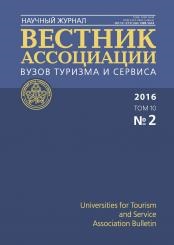Moskva, Moscow, Russian Federation
The article describes the conditions and factors of modern education change-over from knowledge to competence-based paradigm. The most important component of this process is to focus on the success of the student and the teacher. The article critically analyzes the pedagogy of progress and the pedagogy of success. The author compares two social and pedagogical strategies: «received success» and «acquired success». There is also a separated question about the success of the teacher. The relevance of the pedagogy of the success is due to the contemporary social and cultural requirements. They are most suited to the model of "success – overcoming," in which success is achieved through the personal efforts of the man, in spite of unfavorable circumstances making the achievement of goals more difficult. Successful people change social reality, overcome the difficulties on their way, and organize themselves around the needed social environment, therefore, they are always lucky and create the feeling that the results of their activities are easily got. It seamlessly combines individual and social, because the activity of the individual is impossible without a social field, which would implement personal characteristics and social environment is incapable to change without such poles of activity. Modern society forms and approves the doctrine of social success. Focus on success, commitment to its achievement in different areas, adherence to and demonstration of certain standards of success became a factor, structuring the educational process and transforming it into the mode of project activities.
success, education success, competence-oriented education
1. Bakumenko G.V. Koncept sociokul'turnogo processa simvolizacii uspeha // Chelovek i kul'tura. 2014. № 5. S. 59-66.
2. Bakumenko G.V. Percepciya v sociokul'turnom processe simvolizacii uspeha // Chelovek i kul'tura. 2014. № 6. S. 21-28.
3. Bakumenko G.V. Process simvolizacii uspeha kak princip prostranstvenno-sredovoy orientacii elementov sociokul'turnyh sistem // Politika i Obschestvo. 2015. № 7. S. 964-977.
4. Bakumenko G.V. Simvolizaciya uspeha kak sociokul'turnaya refleksiya // Chelovek i kul'tura. 2015. № 4. S. 58-71.
5. Bakumenko G.V. Simvolizaciya uspeha kak sociokul'turnyy process: postanovka problemy. // Filosofiya i kul'tura. 2015. № 5. C. 715-724.
6. Bakumenko G.V. Sociokul'turnyy process simvolizacii uspeha kak predmet issledovaniya // Chelovek i kul'tura. 2015. № 3. S. 41-55.
7. Ivleva M.L., Saenko N.R. Osobennosti primeneniya keys-metoda v kurse «Pedagogika i psihologiya vysshey shkoly» dlya aspirantov // Vestnik Associacii vuzov turizma i servisa. 2016. Tom 10. № 2. S. 59-68.
8. Kayukov V.A. Kategoriya uspeha: istoriko-filosofskiy ekskurs // Psihologiya i Psihotehnika. 2011. № 2. C. 77-81.
9. Koval'chuk F.I. Aktualizaciya problemy «pedagogiki uspeha» v sovremennom rossiyskom obrazovanii // Pedagogika i sovremennost'. 2013. № 1 (3). S. 71-74.
10. Kondrakova S. O. Uspeh kak stimul ucheniya v didaktike K. D. Ushinskogo // Sibirskiy pedagogicheskiy zhurnal (nauchno-teoreticheskoe izdanie). 2007. № 5. S. 167-175.
11. Nemova N.V. Shkola dostizheniy: nachalo puti k uspehu. M., Sentyabr', 2002. 160 s.
12. Oreshkin V.G. Kategoriya «uspeh» v kontekste sovremennogo obrazovaniya // Nepreryvnoe obrazovanie: XXI vek. 2016. № 2 (14). S. 109-117.
13. Orlova E.N. Gumannaya pedagogika - pervyy klyuch integratorov uspeha «Shkoly buduschego» // Mezhdunarodnyy zhurnal eksperimental'nogo obrazovaniya. 2014. № 11-1. S. 13-16.
14. Pimchev S.P. Uchitel'−2030. Pedagogika «samostoyan'ya cheloveka» vs pedagogika «uspeha» // Osovskie pedagogicheskie chteniya "Obrazovanie v sovremennom mire: novoe vremya − novye resheniya". 2014. № 1. S. 33-38.
15. Sokolov A.V. Obschaya teoriya social'noy kommunikacii: Uchebnik. SPb.: Mihaylov, 2002. 461 s.
16. Tubel'skiy A. Ekspertiza innovacionnoy shkoly // Innovacionnoe dvizhenie v rossiyskom shkol'nom obrazovanii. M., 1997. S. 159.
17. Ushinskiy K.D. Izbrannye pedagogicheskie sochineniya. M.: Pedagogika, 1974. 569 s.





